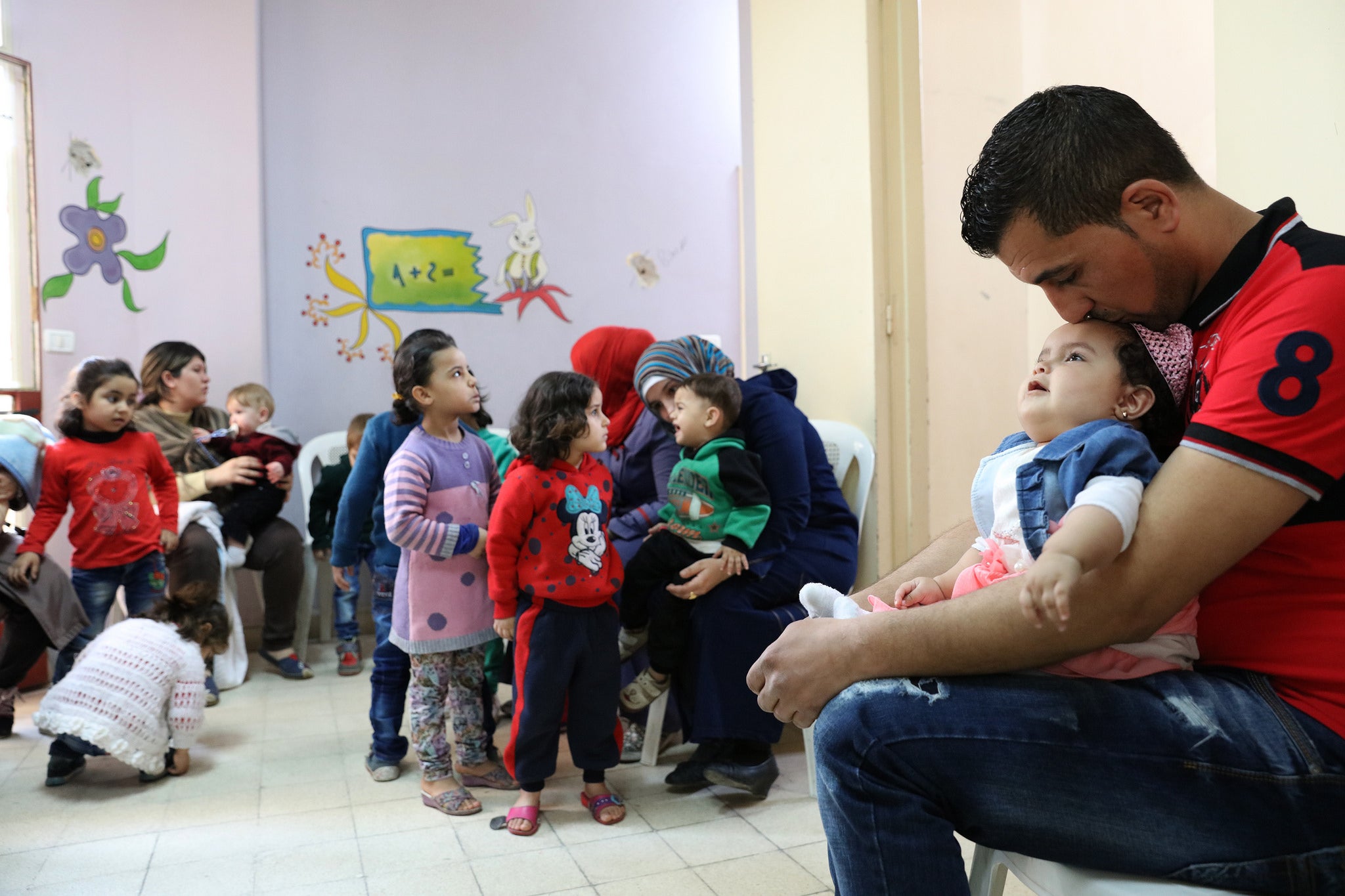
the Howard Karagheusian primary health care center, in Beirut, Lebanon.
This year’s Fragility Forum themed Take Action for Peaceful and Inclusive Societies was held at a time when the plight of millions of forcibly displaced people and growing violent extremism shows real urgency. The 70 plus sessions touched on so many intersections of development, peacebuilding and governance and recurring themes from how to strengthen the global response to forced displacement; to exploring next generation technology; to ending poverty in fragile settings. The following are my key takeaways.
1. Partnerships are the cornerstone of greater success.
The panelists emphasized strongly the idea of partnerships to tackle fragility, conflict and violence. Particularly, the development community and humanitarian groups have long worked separately but with the growing development challenge of the Syrian refugee crisis, a new approach is required. President Kim stressed that “it’s time to work together”. Better cooperation also requires avoiding overlapping goals as Ali Sindi, Minister of Planning, Kurdistan Regional Government, Iraq noted during the first plenary.
2. The private sector can play huge role in the presence of targeted policy interventions and complementary public investments.
The private sector can bring specialized knowledge, investments to meet the needs of people in places where governments do not reach but this requires patience. Laure Wessemius-Chibrac, Managing Director, Cordaid Investments, said “With training and access to finance, people can grow and become amazing entrepreneurs. Employment is the best weapon against weapons”. However, these advantages can be harnessed best in an environment where there is a set of structure and policies to attract and engage the private sector.
3. No accountable government, no peace.
To address the root causes of conflict and fragility, we must also talk about responsibility. Once the Central African Republic was in chaos but now its first woman President Catherine Samba-Panza took the stage on the first day of the forum to call for a strong leadership in fragility and conflict settings, “I inherited a country that was ruined. There was no other choice but for me to bring citizens around conflict resolution”. Legitimate institutions play a major role in reducing the likelihood of recurrent violent conflict.
4. The role of data, technology, and innovative thinking has not been utilized yet.
Technologies are constantly improving to reach a larger audience but without secured access, technology by itself is not going to solve the social ills we see today. Leading technologists from Segovia, Premise and Orbital Insights alluded to the main challenges in such settings: identifying the right target, in this case, the poor; as well as assessing and delivering solutions at a lower cost. Another challenge is also a lack of data literacy, i.e. how to process data in a more impactful and efficient way. Involving community members to collect data and analyze their own data could be very helpful in the long run, although it can be costly because that would require an investment of time, training, and resources.
5. Civil Society should be part and parcel of the solution.
Civil society can bridge the gap between government and the international community. Hodan Osman, Senior Adviser and head of Strategy Unit, Ministry of Finance of the Federal Government of Somalia, discussed the situation in Somalia during conflict and absence of the state, and how the civil society and the private sector stepped in to provide services. However, the Managing contracts and concessions of Natural Resources in Fragile Situations plenary session that was organized in collaboration with the African Development Bank, touched on the real problems of transparency and lack of a strong civil society in many African countries resulting in alienation of citizens from taking advantage of their country’s resources. Winnie Byanyima, Executive Director of Oxfam International emphasized that without proper capacity, civil society can’t be the watchdog of governments.
Concerns remain. Working in repressive environments is not an easy task. Strengthening social accountability improves citizen-state relations and builds responsibility, but the question remains how we can amplify citizen voices and enable better information sharing in countries where open spaces are limited.
The role of women and the youth is not yet clearly defined. Women and the youth must be part of the solution as they are the primarily vulnerable groups in fragile settings. Without a clear definition of the role of women and youth in fragile and conflict-affected areas, it’s difficult to engage them in such processes. Equally important is countering the myth that most young people in conflict area seek violence. In most conflict areas, young people are not involved in violence. During the three-day forum, youth marginalization as a cause and a result of conflict was not discussed in a comprehensive manner and much work is needed here.
Taking action for peaceful and inclusive societies requires a multifaceted approach, not one-size-fits-all. The forum through its participants and speakers acknowledged so many important issues such as there is there is no silver bullet solution; cultural sensitivity remains crucial; inclusion matters; innovative solutions are important; and champion resilient societies. However, what do these words actually mean, and how can they be applied in fragile, conflict and violence settings? How will all the above points be enforced?
At the end of it, without political will and commitment, we can’t move forward. As the World Bank Senior Vice President Kyle Peters stressed, leaders and partners from every direction of the world should put the problem in the middle and gather together. But this task is not an easy one. The World Bank Group brought diverse groups to discuss solutions. As inclusion matters to address global issues, collaboration is also important. Most importantly, collaboration works best when leaders are less rigid and more action-oriented which brings political will and commitment as the key to enforcement.


Join the Conversation